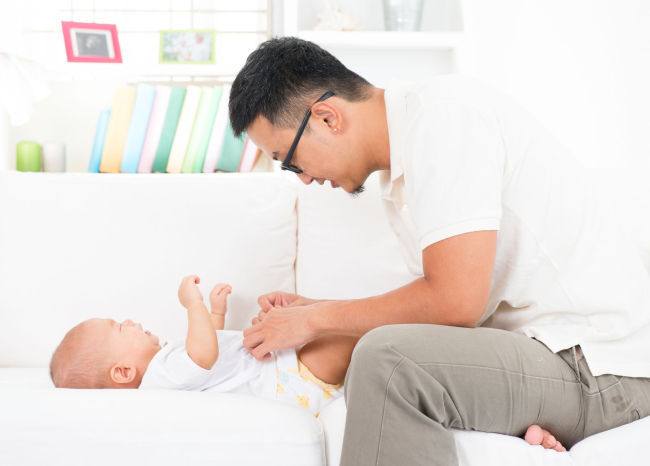Men taking paternity leave rise 46.7 percent on-year in 2018
By Kim Bo-gyungPublished : Jan. 23, 2019 - 14:36
The number of male employees taking paternity leave in Korea rose 46.7 percent on-year in 2018 amid a shift in social perception and workplace culture, the government said Wednesday.
A total of 17,662 male workers went on paternity leave last year, up 46.7 percent from 12,042 people in 2017, according to data from the Ministry of Employment and Labor.
“The rise in paternity leave is due to changes in the social atmosphere, alongside various policies such as increased income replacement ratio during parental leave, and campaigns emphasizing work-life balance,” the ministry said in a statement.
However, gender inequality in parenting remains high, with paternity leave making up 17.8 percent of 99,110 cases of parental leave last year.
A total of 17,662 male workers went on paternity leave last year, up 46.7 percent from 12,042 people in 2017, according to data from the Ministry of Employment and Labor.
“The rise in paternity leave is due to changes in the social atmosphere, alongside various policies such as increased income replacement ratio during parental leave, and campaigns emphasizing work-life balance,” the ministry said in a statement.
However, gender inequality in parenting remains high, with paternity leave making up 17.8 percent of 99,110 cases of parental leave last year.

In another sign of inequality in parenting, the number of male workers applying for reduced workhours offered to parents with children aged 8 or younger tallied at 550 people out of 3,820, according to data.
Parents with children aged 8 or younger can apply for shorter workhours of between 15 to 30 hours a week, with the government partially covering for the lowered income.
“Society’s general view toward male workers seeking to spend more time with family has improved, but I think we still have a long way to go,” said Kang Sun-young, 32, who has a 2-year-old daughter and works at a small-to-medium sized company.
“When it comes to parenting or household chores, the job largely remains a task for the wife. Even most women my age are expected to work, take care of children and do household chores.”
In terms of household chores, 76.2 percent of husbands and 77.7 percent of wives replied that the wife handles most of the housework, according to state-run Statistics Korea’s index on compatibility between work and family released in 2018.
The imbalance could result in a greater risk of suicide among women “dissatisfied” with the division of housework with their spouse, research showed.
Such dissatisfied women are 2.7 times more likely to have suicidal thoughts than those somewhat satisfied, while those somewhat satisfied are 1.7 times more vulnerable than those satisfied, according to a study by Seoul-based Yonsei University.
By Kim Bo-gyung (lisakim425@heraldcorp.com)









![[Kim Seong-kon] Democracy and the future of South Korea](http://res.heraldm.com/phpwas/restmb_idxmake.php?idx=644&simg=/content/image/2024/04/16/20240416050802_0.jpg&u=)







![[KH Explains] Hyundai's full hybrid edge to pay off amid slow transition to pure EVs](http://res.heraldm.com/phpwas/restmb_idxmake.php?idx=652&simg=/content/image/2024/04/18/20240418050645_0.jpg&u=20240418181020)

![[Today’s K-pop] Zico drops snippet of collaboration with Jennie](http://res.heraldm.com/phpwas/restmb_idxmake.php?idx=642&simg=/content/image/2024/04/18/20240418050702_0.jpg&u=)